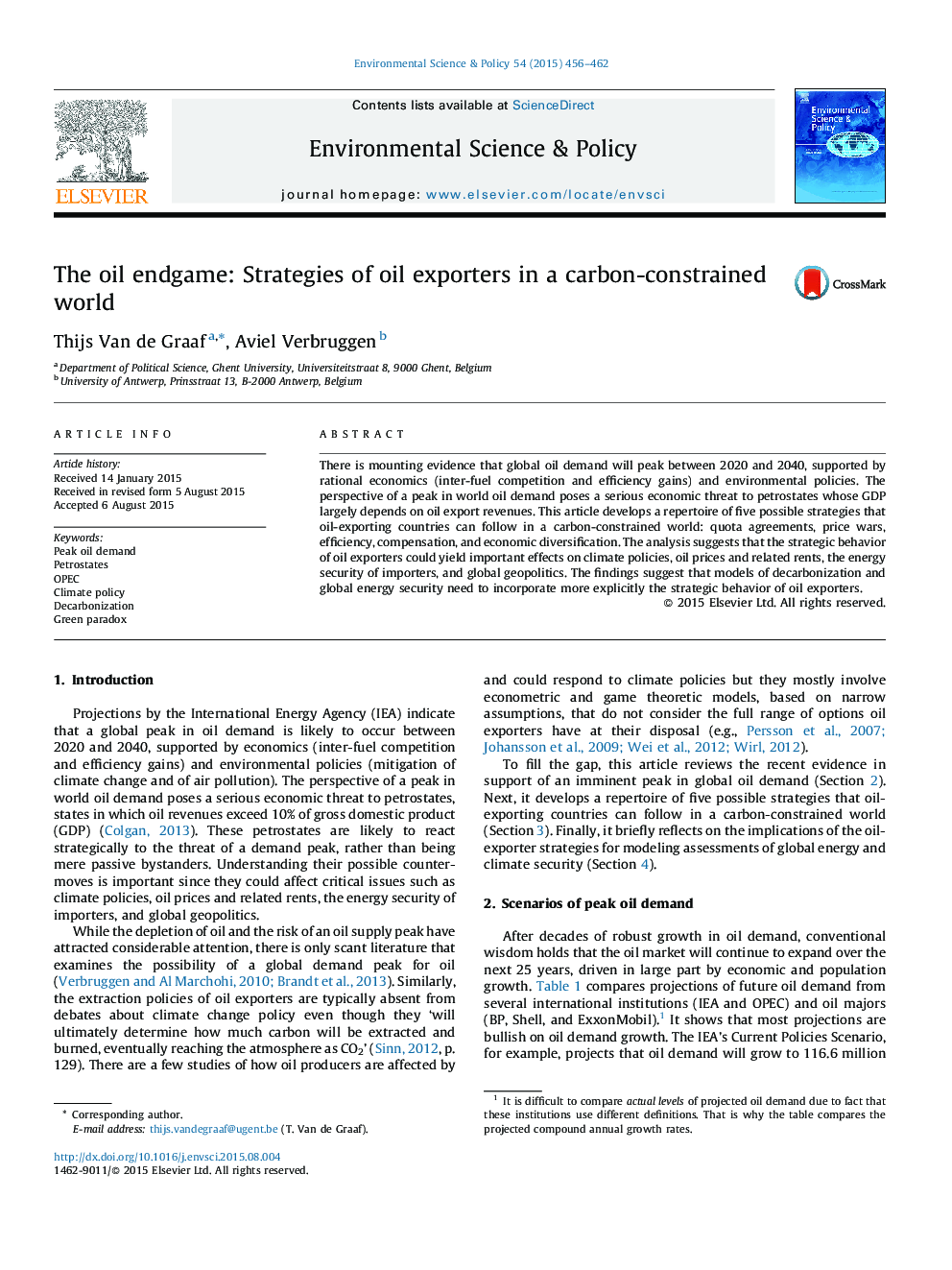| Article ID | Journal | Published Year | Pages | File Type |
|---|---|---|---|---|
| 7467408 | Environmental Science & Policy | 2015 | 7 Pages |
Abstract
There is mounting evidence that global oil demand will peak between 2020 and 2040, supported by rational economics (inter-fuel competition and efficiency gains) and environmental policies. The perspective of a peak in world oil demand poses a serious economic threat to petrostates whose GDP largely depends on oil export revenues. This article develops a repertoire of five possible strategies that oil-exporting countries can follow in a carbon-constrained world: quota agreements, price wars, efficiency, compensation, and economic diversification. The analysis suggests that the strategic behavior of oil exporters could yield important effects on climate policies, oil prices and related rents, the energy security of importers, and global geopolitics. The findings suggest that models of decarbonization and global energy security need to incorporate more explicitly the strategic behavior of oil exporters.
Related Topics
Physical Sciences and Engineering
Energy
Renewable Energy, Sustainability and the Environment
Authors
Thijs Van de Graaf, Aviel Verbruggen,
